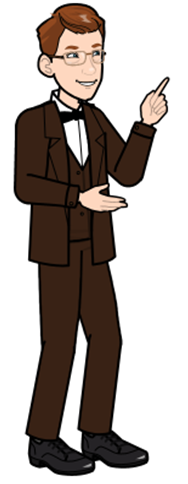I. I. POSSESSIVES

- Form the possessive [‘s] on nouns or pronouns that represent time, distance, value, celestial bodies and living things. For example:
- Six months' rent (time)
- A month's journey (distance)
- 20 billion dollars' worth of aid per year (value)
- The sun's rays (celestial body)
- Ruby Jackson's new office (living thing)
- Possessive of nouns
We form the possessive of most singular common or proper nouns by adding [‘s] . E.g.
- My student's notebook
- Miss Ross's testimony
- Luis's car
Exceptions: According to the University of Arizona Writing Center, we use only an apostrophe to form the possessive of the names Jesus and Moses and other ancient classical names.
- Moses’ law
- Jesus’ followers
- Achilles’ heel
- Xerses’ army
Additionally, use only an apostrophe in the following expressions.
- for goodness' sake
- for appearance' sake
- for convenience' sake
- Verb ending in -ing
We use a possessive noun or pronoun before a verb that ends in –ing. E.g.
- Joshua was pleased by Emile's returning on time.
- Compound words of phrases
With a compound word or phrase, form the possessive by adding [‘s] to the last word.
- my brother–in–law's car
- The chairman of the board's name
- When ownership is implied
Use a possessive if ownership is implied, even if the possession itself is not stated in the sentence.
- We will all meet at Dr. Steven's for dinner.
Businesses and organizations
Businesses, organizations, and educational institutions may or may not use

apostrophes with their names to show possession. Follow the organization's format or usage.
- St. John's College
- Regents College
- Massachusetts Institute of Technology
- Harvard University
- Stanford University
- University of Michigan
- Universidad Nacional Autónoma de México
- Simon Fraser University
When we are talking about places or organizations, we can use both the possessive [‘s] or “of” indistinctively.
- The decision of the country on pharmaceuticals is questionable_Or
- The country’s decision on pharmaceuticals is questionable
- Not many people agree with the government's prediction that the economy will improve.
- Not many people agree with the prediction of the government that the economy will improve.
- Using double-possessive or double-genitive
We use the double possessive [of + possessive case [‘s] or possessive pronouns: mine, yours, his, hers, ours, yours theirs] if there is a determiner (a, some, etc.) before the nouns. We use it to talk about one of many things that we have.
- Elizabeth Bartlow is a friend of my parents’.
- Elizabeth Bartlow is a friend of theirs.
- Elizabeth Bartlow is one of my parents´friends.
- Some friends of Jessica’s came to the party.
- Some friends of hers came to the party.
- Some of Jessica’s friends came to the party.
- Isn’t that a friend of your brother’s?
- Isn’t that a friend of his?
- Isn´t that one of your brother’s friends?
- Jennifer Steward is a colleague of mine.
- Jennifer Steward is one of my colleagues,
- Using “of” for inanimate things and abstract nouns
We normally use “of” instead of [‘s] when we are talking about inanimate things, parts of things, or abstract nouns.

- The freedom of the press is at stake.
- The drawer of the desk is stuck.
- I love the beauty of the sunrise.
- Go to the end of the page.
- The secret of success is constancy.
9. What do we use in long noun phrases?
We also use “of” instead of [‘s] with long noun phrases. For example:
- This is the car of the new employee in the accounting department.
- That’s the fiancé of one of my friends from Canada.
II. COMPOUND NOUNS
a) In many cases we use compound nouns [noun + noun] to refer to possessions, instead of [‘s] or “of”. When we use compound nouns [noun + noun] , the first noun acts as an adjective or a modifier of the second noun. Therefore, the first noun is generally used in singular form. For example: door knob, water tank, bus stop, car key, car park, ice cream, haircut, printer cartridge, etcetera.
- The lid of the toilet seat is broken. Or
- The toilet seat lid is broken
b) One word, two separate words or two words linked with a hyphen?
You have certainly noticed that compound nouns can be written either as a single word, as two separate words or as a word with a hyphen. There are no clear rules about this. It is a matter of usage. In general, compound nouns are often two separate words, e.g. dog food, apple tree, bus stop, school bus, full moon, washing machine, etcetera. However, as compound nouns become more and more common, they are sometimes used as one word; for instance, software, database, blackboard, football, bookstore, bathroom, haircut, among others. Other times, compound nouns are linked with a hyphen. E.g. father-in-law, in-laws, X-ray, merry-go-round, self-respect, self-confidence, dry-cleaning, etcetera.
II. CONSOLIDATION
III. EXERCISE 1
IV. READING TEXT
Screen Addiction Among Teens: Is There Such A Thing?
By Anya Kamenetz
2018

PART 2
Seeking treatment for screen addiction
(I) Though tech addiction isn’t officially recognized yet in the United States, there are in-patient treatment facilities or teens that try to address the problem. For my book, I interviewed a teenage boy who attended a wilderness therapy program in Utah called Outback. “I started playing [video games] when I was around 9 years old,” said Griffin, whose last name I didn’t use to protect his privacy. He chose email over a phone interview. “I played because I found it fun, but after a while I played mostly because I preferred it over socializing and confronting my problems.” After he spent weeks hiking through the wilderness, his mother saw a lot of improvement in his (1) demeanor and focus. However, Griffin came home to a reality where he still needed a laptop for high school and still used a smartphone to connect with friends. Bishop, who runs therapeutic Summerland camps in California and North Carolina, says the teens who come to him fall into two broad categories. There are the ones, (2) overwhelmingly boys, who spend so much time playing video games that, in his words, they “fall behind in their social skills.” Often they are (3) battling depression or anxiety, or they may be on the autism spectrum.
(II) Then there is a group of mostly girls who (4) misuse and (5) overuse social media. They may be obsessed with taking selfies — Bishop calls them “selfists” — or they may have sent inappropriate pictures of themselves or bullied others online. Regardless of the problem, “We feel the issue is best conceptualized as a ‘habit’ over an ‘addiction,’ “ Bishop says. “When teens think about their behavior as a habit, they are more empowered to change.” Labeling someone an addict, essentially saying he or she has a chronic disease, is a powerful move. And it may be especially dangerous for teens, who are in the process of forming their identities, says Maia Szalavitz. She is an addiction expert and the author of Unbroken Brain: A Revolutionary New Way Of Understanding Addiction. Based on her experience with drug and alcohol addiction, she thinks grouping kids together who have problems with screens can be (6) counterproductive. Young people with (7) milder problems may learn from their more “deviant peers,” she says. For that reason, she would encourage families to start with individual or family counseling.
(III) Different habits demand different approaches to treatment. People who have problematic relationships with alcohol, drugs or gambling can choose abstinence, though it’s far from easy. Those who are binge eaters, however, cannot. They must rebuild their relationships with food while continuing to eat every day. In today’s world, technology may be more like food than it is like alcohol. Video games or social media may be avoidable, but most students need to use computers for school assignments, build tech skills for the workplace, and learn to combat distraction and procrastination as part of growing up. How can people, especially young people, forge healthier relationships with technology while continuing to use it every day? Some technologists believe that what has to happen is a change in the tech itself.
Fighting tech with tech
(IV) For over a decade Gabe Zichermann was a self-described “cheerleader” for what’s called “gamification.” He consulted with the world’s largest corporations and governments on how to make their products and policies as compelling as a video game. But, he says, “there was a moment I realized that things had gone too far.” He was in a restaurant and looked around and saw “literally everyone was looking at their phones.”Zichermann started thinking about his family history and about his own relationship to technology.
(V) He realized that his work up to that point had been contributing to some serious social problems. Like Harris, he is concerned that in a world of ubiquitous and free content, platform- and device-makers make more money the more time you spend on screens. This, he says, results in “a ton of compulsive behavior” — around everything from pornography to World of Warcraft to Facebook. Feeling “partially responsible,” Zichermann set out to create an anti-addiction app. It’s called Onward, and it has a number of different features and approaches in both free and paid modes. It can simply monitor in the background and give you a report of your use, which for some people, says Zichermann, is enough to motivate change. Or it can share that report with someone else — say, a parent — for accountability (the app is rated for use by 13-year-olds and above). Or, say you want to stop browsing Facebook during business hours. The paid mode of the app allows you to block Facebook, but it can also monitor in the background to try to predict when you might be about to surf there. “The idea is that when the drink is in your hand, it’s too late,” says Zichermann. In that moment, the app serves up an intervention like a breathing exercise, or an invitation to get in touch with a friend. Zichermann calls this “a robot sitting on your shoulder — the angel of your good intention. ”The company has partnered with both UCLA Health and Columbia University Medical Center to research the efficacy of the app, and Zichermann says they plan to seek FDA approval as a“digiceutical.”
(VI) In essence, Zichermann is trying to gamify balance — to keep score and offer people rewards for turning away from behavior that’s become a problem. The word “addiction” may currently be attracting controversy, but you don’t need a doctor’s official pronouncement to work on putting the devices down more often — or to encourage your kids to do so as well.
©2018 National Public Radio, Inc. News report titled "Screen Addiction Among Teens: Is There Such A Thing?" was originally published on NPRed on February 5, 2018 and is used with the permission of NPR. Any unauthorized duplication is strictly prohibited. Unless otherwise noted, this content is licensed under the CC BY-NC-SA 4.0 license
V. PRACTICE 1
VI. SECTION II.
VII. BIBLIOGRAPHY
Cambridge University Press. (2015). Cambridge Advanced Learner’s Dictionary. Fourth Edition.
Eastwood, J. (2019). Oxford Practice Grammar. Intermediate. Oxford University Press.
Hewings, M. (2013) Advanced Grammar in Use with Answers: A Self-Study Reference and Practice Book for Advanced Learners of English. CUP
Murray, L. (2014) English Grammar. Cambridge University Press.
Swan, M & Walter, C. (2016). Oxford English Grammar Course. Intermediate. Oxford University Press.
VII. WEB RESOURCES
Images_Compra propia de licencias de banco de imágenes de Pixton y Pngtree, exentas de derechos de autor. https://www-es.pixton.com/ & https://es.pngtree.com/free-backgrounds
IX. CREDITS
- Practice exercise written by Connie Reyes Cruz_2022_ENES- LEÓN-UNAM
- Audio version performed by Kimberly and Matt_Compra propia de licencia de uso de voces en Voicemaker, exenta de derechos de autor. https://voicemaker.in/ _Connie Reyes Cruz_2022_
-
Practice exercises written by Connie Reyes Cruz_2022_ UNAM-ENES-LEÓN
- ©2018 National Public Radio, Inc. News report titled "Screen Addiction Among Teens: Is There Such A Thing?" was originally published on NPRed on February 5, 2018 and is used with the permission of NPR. Any unauthorized duplication is strictly prohibited. Unless otherwise noted, this content is licensed under the CC BY-NC-SA 4.0 license_ https://www.commonlit.org/es/library?contentTypes=text&initiatedFrom=library&language=english&searchQuery=Screen%20addiction%20amon%20Teens
- Practice exercise written by Connie Reyes Cruz
- Image_Compra propia hecha por Connie Reyes Cruz de licencias de banco de imágenes de Pixton y Pngtree, exentas de derechos de autor. https://www-es.pixton.com/ & https://es.pngtree.com/free-backgrounds.
- Audio version performed by Kimberly and Matt_Compra propia de licencia de uso de voces en Voicemaker, exenta de derechos de autor. https://voicemaker.in/ _Connie Reyes Cruz_2022_